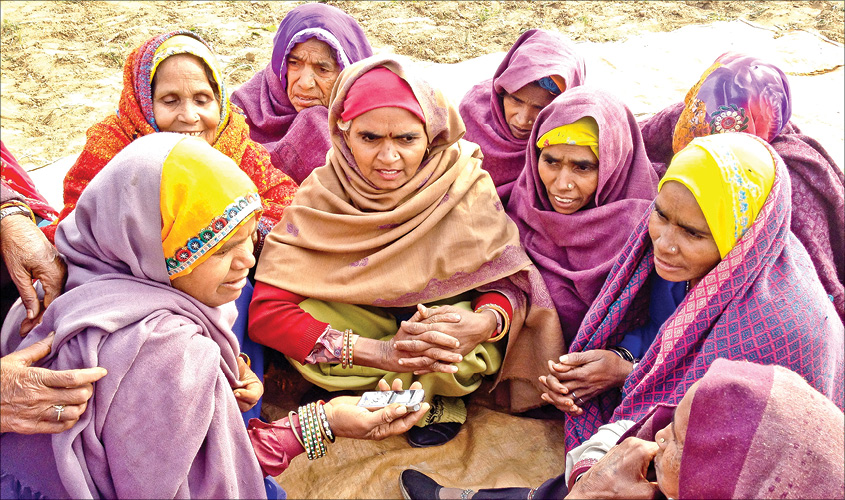When the residents of Mewat heard the voice of a woman on their community radio, Alfaz-e-Mewat, for the first time, they weren’t too pleased. The elders, in particular, did not like how she, being a woman, addressed the listeners as “friends”. But the woman, and the officials of Sehgal Foundation whose brainchild was this program, did not rebel.
The idea, after all, was not to rebuke anyone’s beliefs and feelings, but to arrive at a common ground through active participation of the residents. After much contemplation, the woman offered to seek opinion of the residents on what they would want to be called on the show. They together agreed for “shotang”, meaning listeners.
This was in 2012, when Sehgal Foundation had freshly launched a radio community channel in Mewat to encourage a continuous dialogue among men and women regarding the problems they faced. Six years on, the channel not only has women radio jockeys who are accepted and encouraged, but also young girls who unflinchingly talk about adolescent-related issues on its program Kuch Tum Kaho, Kuch Hum Kahein.
“We have documented the stories of people where a young couple has been beaten for being in a relationship. We have the recordings of young boys and girls who are baffled over the changes in their bodies. The residents are not ashamed to discuss issues ranging from menstruation to eve-teasing and sexual harassment. But of course, we preserve the identity of the caller. The point is not to highlight who said what, but to look at it as an issue that needs to be accepted and resolved,” Pooja Murada, Director of Communications at Sehgal Foundation, told Guardian 20.
Pooja spent three years to procure a license for the show, Alfaz-e-Mewat, from the Ministry of Information and Broadcasting, only after which the show kicked off in 2012. Back then, 40 people came forward to have formal training in broadcast, out of which eight completed the training, and six were hired as full-time workers. Retention, Pooja said, was a huge problem.
“It was a herculean task to bring people, especially women, on board. What was more challenging was to retain them. It was only through the woman RJ that we could instill confidence in other women to open up. Initially, women would not speak live at all. They would reluctantly pass their requests to their sons or husbands who would then speak on their behalf. We then insisted that we would play the song only if the woman speaks to us. That did the trick,” Pooja says.
Villagers call up to discuss a multitude of other issues, too. Sometimes, it is governance-related, like the inability to procure pension or ration, and sometimes, related to personal grievance. Through its pilot project, Kanoon Ki Baat, Sehgal Foundation has collaborated with the National Legal Services Authority which allows the residents to directly get in touch with the Chief Judicial Magistrate of their district. The police also plays a vital role in addressing people’s problems through project Police Aapke Dwaar,
where it holds an interactive session with the residents once every week. The channelisation of rural problems into multiple programs and projects has helped tremendously, Pooja noted.
The recently-launched program on Alfaz-e-Mewat, Uljhan, seeks to build an atmosphere to initiate conversations around mental health. The program, which started in January 2018, is based on a live show format where people tune in to ask questions about fear, anxiety, and depression. All in all, the station broadcasts for 13 hours daily
The foundation was looking at four to five villages when it began in 1999. Today, it monitors the governance of over 700 villages in six states across India. “We primarily look into agriculture, water, and rural governance in all villages of Nuh district. The idea is to empower rural community and come up with models that could be replicated, multiplied and scaled up,” Ajay Pandey, Executive in Chief of Sehgal Foundation said.
“Women have now begun to be identified as transformative leaders. When we started our governance program in 2008, there were only nine women in a team of 35. Today, women comprise 55% of the total strength,” Pandey said.

